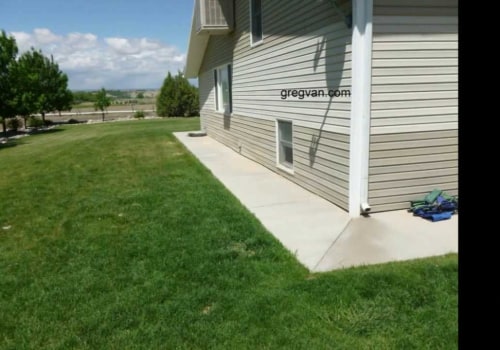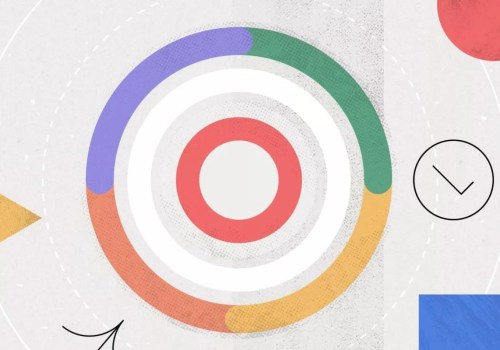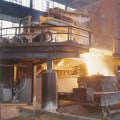Choosing the Best HVAC Air Filters
When you're choosing the best HVAC air filters, you must first understand the importance of MERV ratings. These ratings determine the efficiency of your filter. Ideally, for a home, you'll be looking at ratings between 8-13. Then, ensure you know your filter size. The type of filter you choose matters: from pleated options for better filtration, to cheaper fiberglass options, to reusable washable filters. HEPA filters give you superior air purification but may increase energy costs. Keep in mind that regular filter maintenance helps avoid costly repairs. Navigating the world of HVAC filters becomes a breeze if you delve a little deeper!
Key Takeaways
Determine the appropriate MERV rating for your HVAC system, typically between 8-13 for residential units.
Ensure the filter size fits correctly, measuring the height, width, and thickness if unsure.
Choose between pleated, fiberglass, washable, or HEPA filters based on specific needs and air quality goals.
Regularly maintain and replace your filter, generally every 60-90 days, for optimal HVAC performance.
Consider cost implications, balancing initial price with long-term savings from improved system efficiency.
Understanding HVAC Air Filters
Before we delve into the specifics of the best HVAC air filters, you must understand what an HVAC air filter is and how it works. Simply put, it's your system's frontline defense against airborne pollutants such as dust, allergens, and bacteria. This filter traps and holds these particles, preventing them from recirculating through your home.
Now, let's talk about filter lifespan. It's a key aspect you can't afford to overlook. Most filters last between 1-3 months, but it depends on several factors, including the type of filter and the air quality in your home. You'll need to regularly check your filter and replace it when it's dirty to keep your HVAC system running smoothly.
Then, there's the air quality impact. A good HVAC filter drastically improves your indoor air quality by reducing the concentration of pollutants. But remember, not all filters are created equal. The efficiency of your filter will affect how well it improves your air quality, so consider this when choosing a filter.
In a nutshell, understanding how HVAC filters work, their lifespan, and the impact they have on air quality is the first step to choosing the best one for you.
Importance of MERV Ratings
When choosing an HVAC filter, it's crucial to consider the MERV rating, a critical factor determining the filter's efficiency and overall performance. But first, let's tackle some common MERV rating misconceptions. Many folks believe that a higher MERV rating automatically means better air quality. That's not always the case. The higher the MERV rating, the smaller the particles the filter can trap, but it also means your HVAC system needs to work harder to pull air through the filter.
Maintaining your indoor air quality is a balancing act. You want a filter that's efficient enough to capture harmful particles, but not so restrictive that it puts undue strain on your HVAC system. For most residential systems, a MERV rating of 8–13 is optimal. These filters provide a good balance between efficiency and airflow.
Choosing the Correct Filter Size
After you've determined the appropriate MERV rating, it's crucial to select the correct filter size for your HVAC system. This is where filter compatibility comes into play. The wrong size won't fit properly, leading to inefficient operation and potentially damaging your system.
The size of your filter is usually printed on the side of your current filter, in height, width, and thickness. For instance, a common size is 20x25x1. If you can't find the size, or you're installing a new system, you'll have to measure it yourself. Use a tape measure to get the exact dimensions of the slot where the filter goes.
Once you've got your measurements, it's time to purchase your filters. Keep in mind that the stated size on the filter package might not match up exactly with your measurements due to manufacturing standards. Round up to the nearest inch if necessary.
Installation procedures are fairly straightforward. Make sure your HVAC system is off, then simply slide the new filter in, making sure it fits snugly into the slot. The filter's arrows should face toward the furnace. Once it's in place, turn your system back on. Now, you're all set with the right-sized filter.
Types of HVAC Air Filters
You're about to get the lowdown on the different types of HVAC air filters. We'll start with pleated air filters, move on to the basics of fiberglass filters, and wrap up with an explanation of washable air filters. Each has its pros and cons, so let's get started!
Understanding Pleated Air Filters
What exactly are pleated air filters, one of the most common types of HVAC air filters? They're filters with pleats, or folds, that increase the surface area for trapping particles. Now, considering pleated filter advantages, they usually outperform their non-pleated counterparts. They trap more particles, last longer, and improve air quality significantly. That's crucial for those with allergies or asthma.
Comparing pleat counts, you'll find more pleats per foot mean better filtration. However, too many pleats can restrict airflow, so it's about finding a balance. Typically, a pleat count of 10-16 per foot is ideal. Remember, while pleated filters are effective, they're not the only option. Consider your specific needs when choosing your HVAC air filter.
Fiberglass Filter Basics
Diving into the world of fiberglass filters, these are another popular option in HVAC air filters that you should be familiar with. They are typically less expensive than other types of filters. However, their affordability comes with a trade-off. Their fiberglass longevity isn't as long-lasting as others, typically needing replacement every 30 days.
Even though they don't last as long, disposal methods are simple. You can toss them in your regular trash. But remember, they're not as effective at filtering out smaller particles, which may affect your indoor air quality. If cost is a concern, fiberglass filters can be a good option. But if you're more concerned with air quality, you might want to consider a different type.
Washable Air Filters Explained
Shifting gears from fiberglass filters, let's now take a look at washable air filters, another type of HVAC air filter that might be a smarter choice if you're focused on long-term use and better air quality. These filters boast an impressive filter lifespan, often lasting several years before needing replacement. That's because you can clean and reuse them, saving you money in the long run. To clean a washable filter, you'll need to remove it from your HVAC system, rinse it with water, and let it dry completely before reinstalling. These cleaning techniques are simple and eco-friendly. However, remember to clean your filter regularly, as a dirty filter can hinder your HVAC system's efficiency. Choose washable filters for a cost-effective, long-lasting solution to cleaner indoor air.
The Role of HEPA Filters
You might be wondering, "What role do HEPA filters play in HVAC systems?" Well, let's kick off by examining how efficient these filters really are. Then, we'll move on to discussing how you should maintain them, to ensure they work their best for you.
HEPA Filters Efficiency
Ever wondered how HEPA filters play a crucial role in HVAC systems? These filters are designed to trap tiny particles that other filters can't, offering a superior level of air purification. However, HEPA limitations exist, too. They aren't as effective at filtering out gasses, odors, or chemical pollutants. Additionally, the dense material can make your HVAC system work harder, potentially raising your energy costs.
Looking for alternatives? There are various other filtration methods available. For instance, activated carbon filters are excellent at removing gasses and odors. Meanwhile, electrostatic filters use static electricity to attract and trap particles. Both can be effective alternatives or complements to HEPA filters, depending on your specific needs. Remember, the best filter for you depends on your individual circumstances.
Maintenance of HEPA Filters
Maintaining your HEPA filters properly is vital to ensure their longevity and the optimal performance of your HVAC system. It's not just about cleanliness; it's also about cost-effectiveness. Regular maintenance can extend the life of your filter, meaning you'll replace them less often. This not only saves you money, but it's also better for the environment. Speaking of the environment, consider filter disposal methods when it's time for a change. Don't just throw them in the trash. Look for recycling programs in your area or contact the filter's manufacturer for disposal instructions. By taking the time to maintain your HEPA filters and dispose of them properly, you're doing your wallet and the planet a favor.
Filter Maintenance and Replacement
How often are you checking and replacing your HVAC air filters? If you're not doing it regularly, you aren't maximizing your system's performance. Proper filter maintenance and replacement are essential for optimum efficiency, and neglecting this task could lead to costly repairs or even premature system failure.
The filter lifespan is a significant factor to consider. Most filters should be replaced every 60-90 days, but this can vary depending on the type of filter and your living conditions. If you have pets or suffer from allergies, you might need to replace your filters more frequently.
Now, let's talk about cost implications. Sure, high-quality filters may seem pricey upfront, but they can save you money in the long run. They not only last longer but also improve your HVAC system's efficiency, reducing energy bills. Plus, frequent filter changes prevent dirt and debris from building up in your system, avoiding expensive repair or replacement costs.
Making Your Final Selection
With the importance of regular filter changes in mind, it's time to make your final selection for the best HVAC air filter that suits your needs. You should consider two main factors: filter costs and the installation process.
Filter costs can vary greatly depending on the type and brand. Higher-priced filters often provide better air quality and need to be changed less frequently, making them a cost-effective choice in the long run. However, if you're on a tight budget, a cheaper filter could work just as well, as long as you're committed to replacing it more often.
The installation process is also a crucial factor. Some filters might require professional installation, which can add to the overall cost. On the other hand, many filters are easy to install yourself, saving you money on labor costs. It's essential to choose a filter that you can comfortably install and replace.
Frequently Asked Questions
How Often Should I Change My HVAC Air Filter if I Have Pets?
If you've got pets, you should change your HVAC air filter every 60 days. Pet dander control is crucial for air quality. Your filter material's impact on trapping these particles matters a lot.
Can a HVAC Air Filter Help With My Allergies?
Absolutely, a HVAC air filter can help with your allergies. Choosing the right filter types is crucial. High-quality filters capture allergy triggers like dust, pollen, and pet dander, providing you with cleaner, allergen-free air.
What Are the Potential Consequences of Using a Cheap, Low-Quality HVAC Air Filter?
Using a cheap, low-quality HVAC air filter can affect your filter lifespan and have health implications. You'll replace it more often and it won't efficiently remove allergens, potentially worsening your allergies.
Can I Clean and Reuse My HVAC Air Filter Instead of Replacing It?
Sure, you can clean and reuse your HVAC air filter, but it depends on the filter lifespan. Usually, reusable alternatives are explicitly designed for this and will state so on their packaging.
What Impact Does the HVAC Air Filter Have on My Energy Bill?
Your HVAC air filter's efficiency greatly impacts your energy bill. If it's not efficient, it'll work harder, increasing energy use. Regular maintenance can reduce these costs, so it's crucial to keep it clean.








